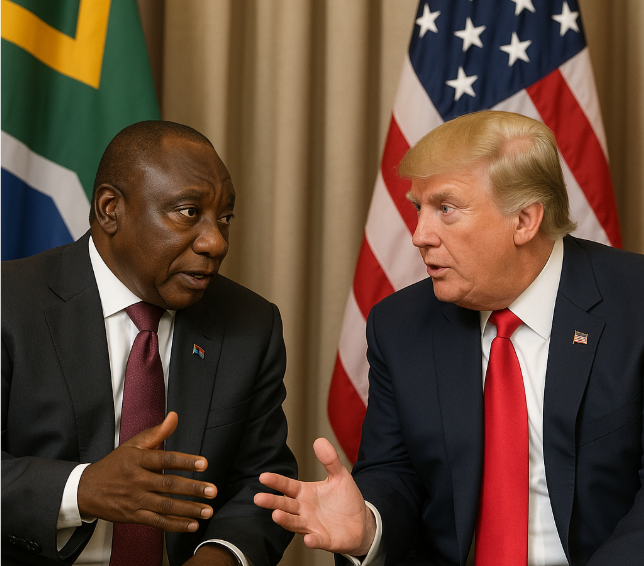Johannesburg – South Africa will pursue a trade deal with the United States, the presidency said on Tuesday, after Donald Trump announced a tariff that threatens to cripple the African nation’s vital citrus industry.
Trump informed Pretoria its exports to the United States will attract a 30 percent tariff from August 1, in a wave of letters sent out Monday to more than a dozen countries.
President Cyril Ramaphosa said the new rate was based on a “contested interpretation” of the two countries’ trade balance and that they would continue to negotiate a trade deal.
“This contested interpretation forms part of the issues under consideration by the negotiating teams from South Africa and the United States,” Ramaphosa said, meanwhile urging South African companies to diversify and reduce reliance on US trade.The US is South Africa’s second largest trading partner after China, exporting agricultural products, precious metals and vehicles.Unless reversed, the new duty risks cutting 35,000 jobs in the local citrus industry alone, the country’s Citrus Growers’ Association chief Boitshoko Ntshabele told AFP.
PRESIDENT RAMAPHOSA RESPONDS TO US TARIFFS ANNOUNCEMENT
President @CyrilRamaphosa has noted the correspondence from President Donald Trump on the unilateral imposition of a 30% trade tariff against South Africa. The President has further noted that South Africa is one of a…
— The Presidency 🇿🇦 (@PresidencyZA) July 8, 2025
South Africa is the world’s second-largest exporter of citrus fruit after Spain, and citrus is the country’s top agricultural export sector.
Most of the jobs will be lost in small rural communities that are particularly vulnerable to external shocks, Ntshabele said.
“If we start having other markets flooded, obviously, you have oversupply, and then the likelihood of a price collapse,” he said.
The 30 percent tariff will be separate from those earlier announced on sectors such as cars, steel, and aluminium.
The effects of the 25 percent duty on automobiles, in place since April, is already being felt.
In June, exports of South African-assembled vehicles dropped by more than 12 percent year-on-year, according to the automotive industry association.
The figure included a sharp drop in Mercedes-Benz’s C-class model exported to the US.
The German carmaker has meanwhile halted production for more than a month at one of its plants in the southeast of the country.
The closure was part of a “planned non-production period” due to volume adjustments, Mercedes-Benz South Africa told AFP.
“We are continuously assessing the impact of the introduced US-tariffs,” it said.
Auto exports – like citrus – were initially exempt from duties under AGOA, a US trade deal that allows certain goods from eligible African countries to enter tariff-free.


